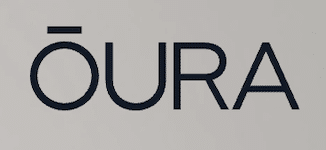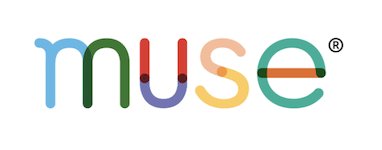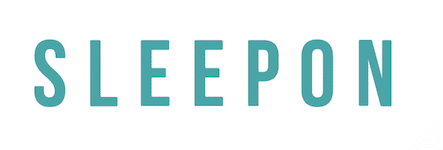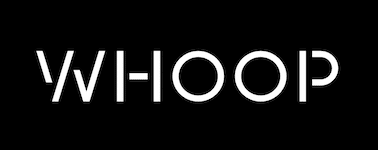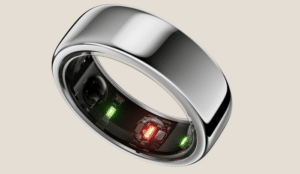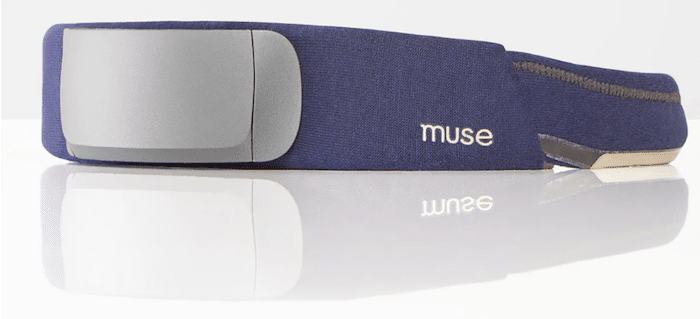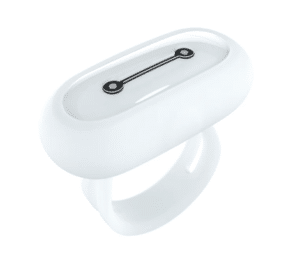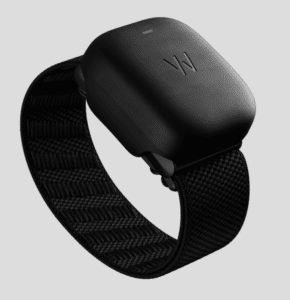The Oura Ring (3rd generation) is a smart ring to track your sleep, activity, and readiness score. The readiness score is a measure of how prepared you are to take on the day’s stressors, according to Oura. It’s one of the most comfortable sleep-tracking devices on our list and is less noticeable than a watch or headband.
The 4 Best Sleep Trackers in 2025
Best Sleep Trackers: Key Takeaways
- Sleep trackers can be an accurate way to monitor how much sleep you get nightly.
- The initial cost for the devices we picked ranges from $30 to $609, but you may pay more for devices requiring a monthly subscription.
- Most sleep trackers also monitor heart rate, heart rate variability, and blood oxygen levels.
Sleep is the foundation of good health. But while the Centers for Disease Control and Prevention (CDC) recommends adults should get seven or more hours of sleep each night, one-third of us do not. [1]How Much Sleep Do I Need? Centers for Disease Control and Prevention. Available on the internet at https://www.cdc.gov/sleep/about_sleep/how_much_sleep.html [2]Sleep and Sleep Disorders. Centers for Disease Control and Prevention. Available on the internet at https://www.cdc.gov/sleep/index.html
A device to track your sleep can help you understand your patterns and provide the sleep data you need to get a good night’s rest. Sleep trackers can track your sleep and measure your heart rate, body movement, body temperature, and more. You can wear some trackers on your body, and others you can place under your mattress.
If you want to learn more about your sleep and work toward better sleep hygiene, find out which tracker is right for you based on our review of four top devices.
A quick look at the best sleep trackers in 2025
- Best Overall: Oura
- Best Sleep Aid: Muse S (Gen 2)
- Best Budget-Friendly Option: Go2sleep
- Best Warranty: WHOOP 4.0
Why you can trust our review of the best sleep trackers
Our team recommends products and services we believe provide value in the lives of our readers. We carried out in-depth research on sleep trackers to give you the most accurate review. To make our selections, we:
- Interviewed a physician specializing in sleep medicine
- Researched different models across the category
- Read real reviews from verified customers on trusted third-party sites, including the Better Business Bureau (BBB) and Trustpilot
Compare the best sleep trackers in 2025
| Provider | Type of tracker | Price (device only) | Subscription | Main features | Visit Site |
|---|---|---|---|---|---|
| Ring | $299–$609 | Required, $5.99/mo | Tracks sleep, activity, menstrual cycle, and readiness | Visit Site | |
| Headband | $399.99–$444.98 | Optional, $12.99/mo or $49.99/year | Personal meditation and sleep coach; detects heart rate, brain activity, posture, and breathing | Visit Site | |
| Ring and fingertip holder | $99–$129 | No subscription | Monitors sleep, heart rate, heart rate variability, and blood oxygen | Visit Site | |
| Wristband | $30–$399 | Required; monthly ($30/mo), 12 months ($239), or 24 months ($399) | Monitors sleep, strain, recovery, health, and stress | Visit Site |
Best sleep trackers in 2025
How do sleep trackers work?
Sleep trackers use various techniques to record sleep habits. Each device type may work in different ways and use a combination of sensors and technologies.
Actigraphy
Actigraphy measures your activity and sleep using an accelerometer. [10]Cleveland Clinic. Actigraphy (Actigraph). Aug. 16, 2023. Found on the internet at https://my.clevelandclinic.org/health/drugs/25196-actigraphy Accelerometers detect movement and sense things like vibrations or speed of movement. When you move your smartwatch around while you sleep, the accelerometer records those movements.
Heart rate and body temperature
Your heart rate and body temperature fluctuate during each sleep phase. [11]Harvard Health Publishing. How Does Sleep Affect Your Heart Rate? Jan. 29, 2021. Found on the internet at https://www.health.harvard.edu/blog/how-does-sleep-affect-your-heart-rate-2021012921846 As you fall asleep, your body functions slow down. During light sleep, your heart rate settles to a resting pace, your body temperature drops and your muscles relax. During deep sleep, your heart rate slows 20% to 30% below your resting heart rate. Then, during the REM sleep, your heart rate may fluctuate depending on your dreams.
Sleep-tracking devices often detect your heart rate and body temperature to determine your sleep phase.
EEG
Some trackers use EEG sensors to detect brain activity while you sleep. For example, the Muse S (Gen 2) plays meditative sounds at an intensity to correlate with your brain activity.
What do sleep trackers measure?
Sleep trackers measure different body functions while you sleep. While every device is different, most devices track: [12]Johns Hopkins Medicine. Do Sleep Trackers Really Work? Found on the internet at https://www.hopkinsmedicine.org/health/wellness-and-prevention/do-sleep-trackers-really-work
- How long you slept
- The quality of your sleep
- Sleep phases (and how long you were in each phase)
- Environmental factors (like the temperature of your room)
- Heart rate and heart rate variability
- Body temperature
- Activity level
Types of sleep trackers
Sleep trackers can be separated into two categories: wearable and non-wearable (under-the-mattress) trackers. Wearable smart devices are:
- Rings
- Watches
- Wristbands
- Headbands
- Sleep masks
If you’re uncomfortable wearing a device while you sleep, non-wearable sleep trackers may be a better fit. But, there are some benefits to a wearable device.
“The advantage of wearables is that it tracks an individual’s health even when they are not in bed,” said Sairam Parthasarathy, MD, professor and chief of the Division of Pulmonary, Allergy, Critical Care and Sleep Medicine department at the University of Arizona Tucson.
Wearable sleep trackers may also be more accurate, but more research is needed to know for sure. “In general, the wearables are likely superior to non-wearable-based measures, but unless we perform head-to-head comparisons, we will not know for sure,” said Parthasarathy.
What to consider when purchasing a sleep tracker
The best device for you will depend on various factors. When purchasing a sleep tracker, you should consider:
- Accuracy: If you are investing in a sleep tracker, it’s important to receive accurate data.
- Comfort: Depending on your preference, some devices may be more comfortable than others.
- Type of tracker: Consider whether you want a wearable (ring, wristband, headband, etc.) or an under-the-mattress device.
- Battery life: If you don’t want to charge your device often, opt for a tracker with a longer battery life.
- Cost and subscription fees: Some devices require you to pay a monthly subscription along with the device. Take the full price into consideration when choosing a device.
- Additional features: You may be interested in snore detection, sleep coaching, smart alarms, or other features.
How we chose the best sleep trackers of 2025
Based on our expert consultations and research, we determined the following factors to be important when shopping for a sleep tracker:
- Price
- Accuracy
- Comfort
- Warranty
- Battery life
We selected each device based on these factors to ensure each brand and model is appropriate for NCOA readers.
Bottom line
Sleep trackers monitor your sleep to help you understand your patterns and other aspects of your health. Sleep trackers may record your heart rate, heart rate variability, blood oxygen levels, body temperature, and more. These devices can be worn on your body or placed under your mattress. Before purchasing a sleep tracker, make sure you consider the cost, accuracy, battery life, and type.
Sleep trackers cannot diagnose a sleep disorder. If you are concerned about your sleep patterns or think you may have a sleep disorder, talk with your health care provider.

Additional sleep resources
Frequently asked questions
Sleep trackers use various sensors and technologies to track your nightly body functions and patterns. These metrics—like heart rate, body temperature, and movement—can provide information about the quality and quantity of your sleep.
If you want to learn more about how much you sleep, how long you spend in different sleep stages, or if you wake up in the middle of the night, a tracker can help you better understand your habits. But if you want to diagnose a sleep disorder, talk with your doctor about undergoing a sleep study.
Have questions about this review? Email us at reviewsteam@ncoa.org.
Sources
- Centers for Disease Control and Prevention. How Much Sleep Do I Need? Found on the internet at https://www.cdc.gov/sleep/about_sleep/how_much_sleep.html
- Centers for Disease Control and Prevention. Sleep and Sleep Disorders. Found on the internet at https://www.cdc.gov/sleep/index.html
- Miller DJ, et al. A Validation of Six Wearable Devices for Estimating Sleep, Heart Rate, and Heart Rate Variability in Healthy Adults. Sensors. August 2022. Found on the internet at https://www.mdpi.com/1424-8220/22/16/6317
- Johns Hopkins Medicine. Electroencephalogram (EEG). Found on the internet at https://www.hopkinsmedicine.org/health/treatment-tests-and-therapies/electroencephalogram-eeg
- De Fazio R, et al. Methodologies and Wearable Devices to Monitor Biophysical Parameters Related to Sleep Dysfunctions: An Overview. Micromachines. August 2022. Found on the internet at https://www.mdpi.com/2072-666X/13/8/1335
- Jaoude MA, et al. Automated Sleep Staging on Wearable EEG Enables Sleep Analysis at Scale. 2023 11th International IEEE/EMBS Conference on Neural Engineering (NER). May 2023. Found on the internet at https://ieeexplore.ieee.org/abstract/document/10123829
- Zambrano Chacon LA, et al. Sleep-Tracking Device Compared to Polysomnography for Respiratory Events and Sleep Architecture Analysis. European Respiratory Journal. 2022. Found on the internet at https://erj.ersjournals.com/content/60/suppl_66/2729
- Zhang Z, et al. The Challenges and Pitfalls of Detecting Sleep Hypopnea Using a Wearable Optical Sensor: Comparative Study. Journal of Medical Internet Research. July 2021. Found on the internet at https://www.jmir.org/2021/7/e24171/
- Berryhill S, et al. Effects of Wearables on Sleep in Healthy Individuals: A Randomized Crossover Trial and Validation Study. Journal of Clinical Sleep Medicine. Found on the internet at https://pubmed.ncbi.nlm.nih.gov/32043961/
- Cleveland Clinic. Actigraphy (Actigraph). Aug. 16, 2023. Found on the internet at https://my.clevelandclinic.org/health/drugs/25196-actigraphy
- Harvard Health Publishing. How Does Sleep Affect Your Heart Rate? Jan. 29, 2021. Found on the internet at https://www.health.harvard.edu/blog/how-does-sleep-affect-your-heart-rate-2021012921846
- Johns Hopkins Medicine. Do Sleep Trackers Really Work? Found on the internet at https://www.hopkinsmedicine.org/health/wellness-and-prevention/do-sleep-trackers-really-work

